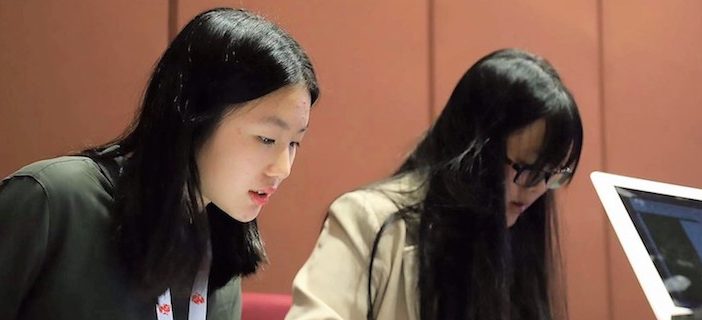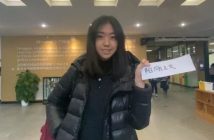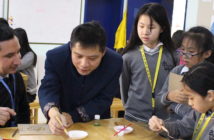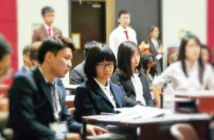From Nov 19-23, the BWYA Model United Nations Club participated in the 14th Annual Session of THIMUN (The Hague International Model United Nations) Singapore held at the Hwa Chong Institution. The participants, who come from Grades 9 to DP1, took part in the full range of committees, holding various occupations from delegate to president to journalist. The students all left the conference with increased confidence and loads of great memories.
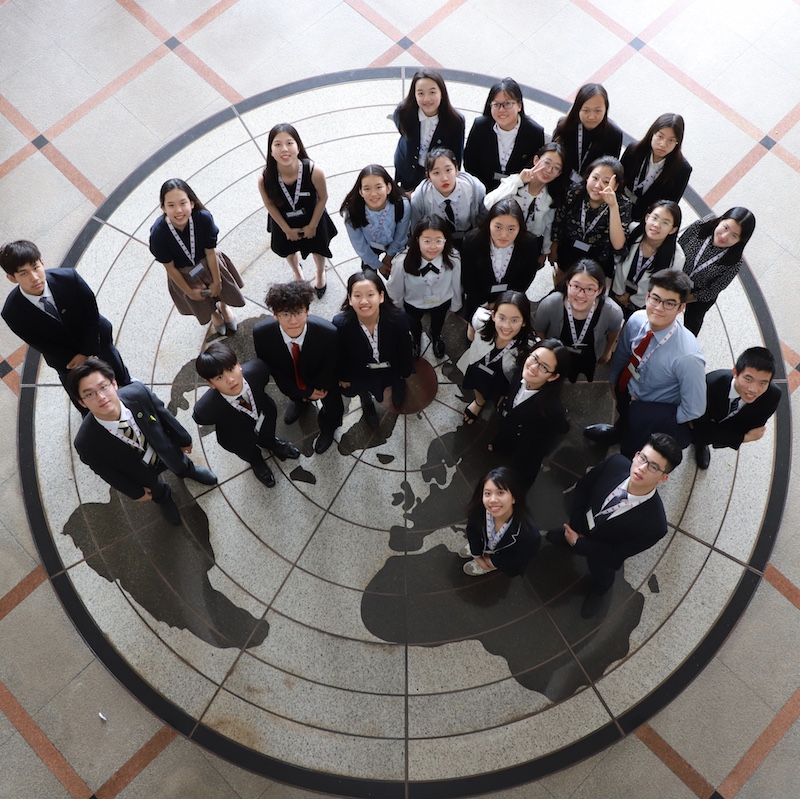
BWYA students at THIMUN Singapore 2018
The THIMUN Singapore conference, established in 2004 as a sister conference of The Hague International Model United Nations, is the most prestigious MUN conference in Asia. Every year, globally-aware students gather in Singapore to hold extensive debates over the most controversial topics, many of which the UN has no solutions for, and draft comprehensive resolutions that may be delivered to the UN.
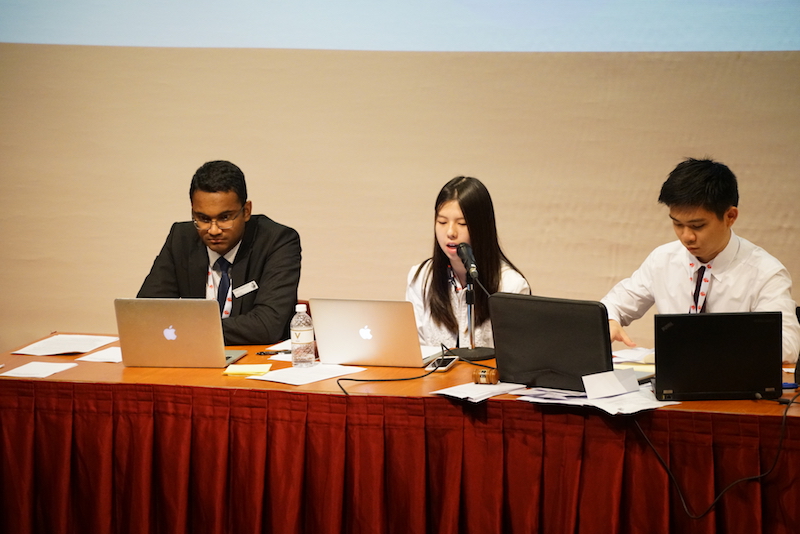
MUN is just a simulation of the UN and all discussions are kept subjective, given that delegates are merely students virtually representing a country’s stand. Having participated in MUN conferences as a delegate, I used to wonder whether my effort was spent in the right place, knowing that what I said might not ever have an effect in the real world. Furthermore, many of the skills MUN builds, such as leadership, confidence, and public speaking experience, can all be achieved through other debate style events. However, this year, after being a member of MUNITY East, THIMUN Singapore’s official Press team, I have come to a different conclusion: MUN is an effective transition into a globalized society and helps students to achieve the BWYA school motto: “Locally Grounded, Globally Aware.”

MUNITY East press team 2018
“Why is it necessary for one to bear knowledge regarding global politics?” you might ask. The answer is that everyone, no matter what their occupation or field of study, is part of human society. During the conference, the Press team had the pleasure of talking with Mr. Seref Isler, a BBC journalist who actually took part in many THIMUN Hague conferences during high school. His unique MUN experiences helped him to kick off his journalism career. During one workshop, he told us, “Each member of society must learn its essential principles in order to make the right decision and speak justly for the greater good.” From this perspective, thanks to its politically-based attributes, MUN nurtures a student’s fundamental responsibility as a global citizen.
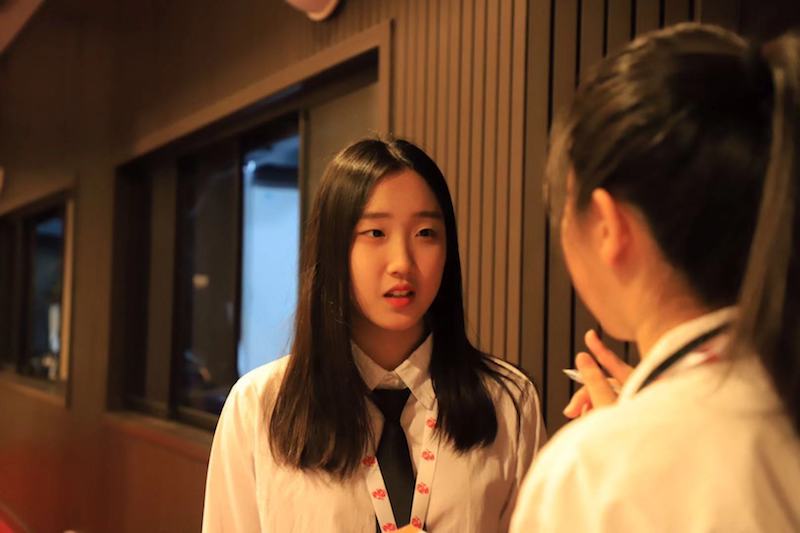
One of the most effective ways to learn knowledge is through reinforcement. However, a student may find it easy to memorize a list of historical events but may not necessarily be aware of why they have taken place and what impact they have brought to the contemporary world. MUN helps students to become aware of the factors influencing global politics through the implementation of knowledge in debates and speeches. Their knowledge thusly reinforced, students become more globally aware and are able to make better decisions.
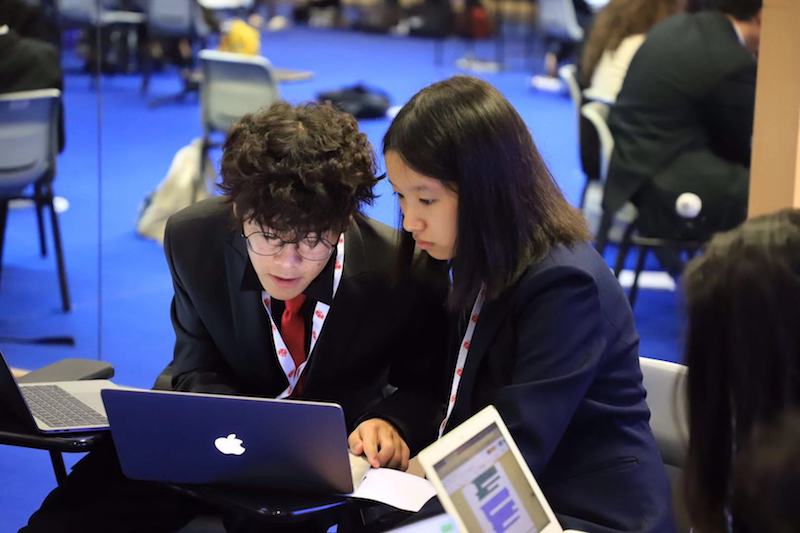
Being globally aware does not just mean “diligently studying your world history” (although your history teacher will certainly be happy if you do); it also means being able to put oneself in others’ shoes and coming up with comprehensive solutions to problems that benefit the maximum number of parties. Unlike other debates, MUN requires a student to develop interpersonal skills such as communication and negotiation. Tolerance for different voices is another crucial characteristic that MUN helps to develop. After asking my fellow students what they thought was the most important thing about the conference, almost all of them responded “tolerance”, because “different opinions actually enable students to work collaboratively to find a comprehensive resolution.” “In a debate or many other events,” they responded, “there is only one side that wins. But at MUN, everyone is allowed to have a unique statement on the resolution.”
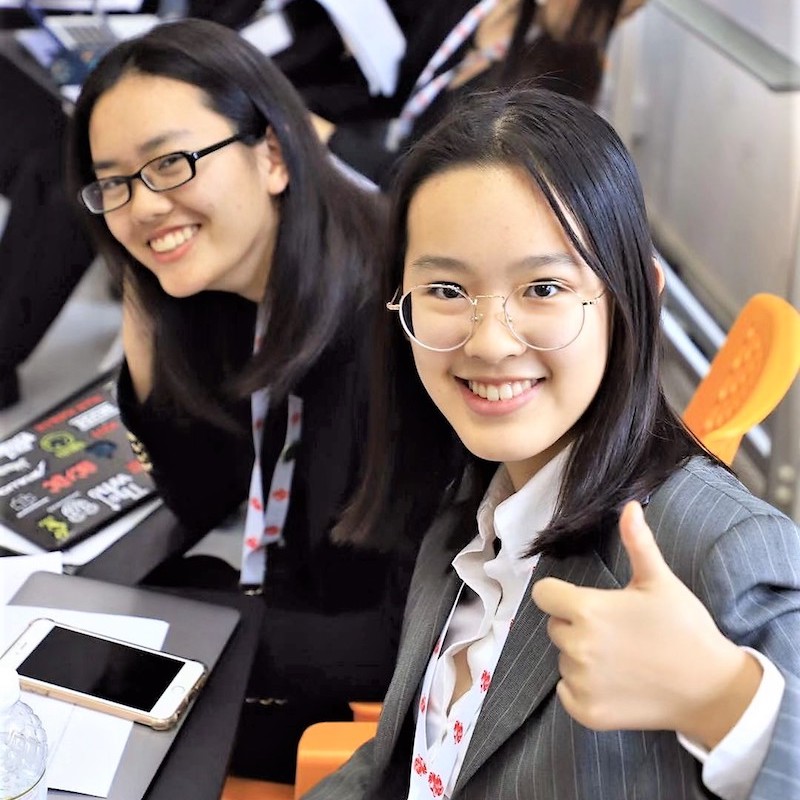
MUN not only builds public-speaking skills, confidence, and leadership, it is also a wonderful platform through which students can become globally aware of political policies and relationships. It may only be a simulation and hardly any of the resolutions have any significance on the real-world situation but students are nevertheless trained to become more responsible for their stance, influencing them to become global leaders in the future.
This post is provided by BWYA
Photos courtesy of BWYA

